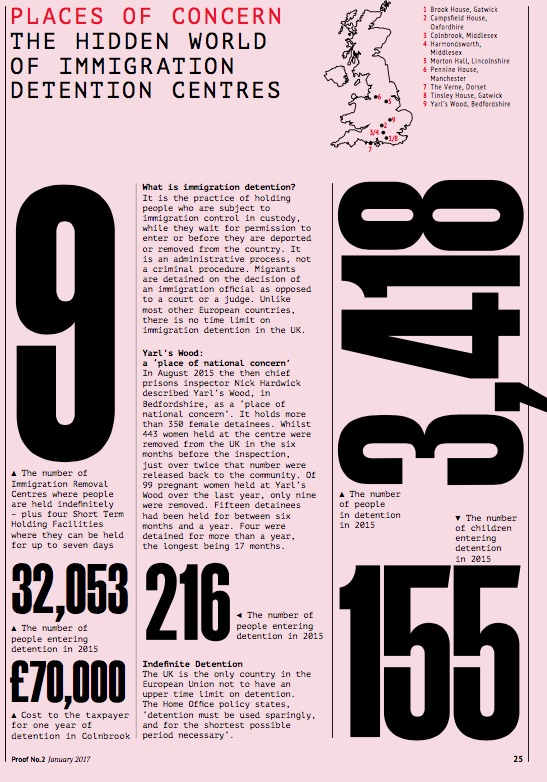There are growing concerns about the poor quality of legal advice available to immigration detainees following changes to the provision of free advice in detention centres. In September last year, the Ministry of Justice made changes to the contracts with solicitors’ firms on the Detention Duty Advice scheme allowing for an increase in the number of providers. Under the old contracts one firm would have provided around 20-25 weeks of legal advice surgeries, now each firm run surgeries over one or two weeks a year in any given detention centre.
According to the legal charity BID (Bail for Immigration Detainees), the vast majority of providers have never run duty surgeries in the past and the ‘lack experience of detention work’. BID’s latest report on immigration detainees’ access to legal help revealed that whilst the level of representation has gone up – almost two-thirds of detainees now have access to a solicitor and of that number 69% are legally-aided – there were growing concerns about quality.
The group interviewed 77 detainees across a number of immigration removal centres. The survey revealed that in the majority of appointments (61%), only basic information was taken and no advice given. Not a single detainee had been informed of the possibility of applying to the Legal Aid Agency for ‘exceptional case funding’ which allows for legal aid where someone might otherwise not be eligible for public funding. Just over four out of 10 individuals (43%) who currently had a solicitor said that their solicitor had applied for bail.
Celia Clarke, BID’s director, said the Home Office acted as ‘judge, jury and executioner in stripping immigration detainees of their rights, their liberty, and their basic dignity’ and called for the ‘reinstatement of legal aid for all immigration cases and an end to the inhumane system of immigration detention’.
The survey found that more than eight out of 10 detainees (82%) were aware that there was some free legal representation available. However, the respondents were generally worried about the quality of legal advice, with some choosing not to make an appointment because, in the words of one, ‘free…lawyers were incompetent’. For those who did not have an immigration solicitor, half of the detainees reckoned that this was because they ‘could not afford one or were ineligible for legal aid’.
The appointments for detainees’ case assessments are intended to last just 30 minutes, which BID argues is inadequate; however the group reports that in some cases detainees were receiving less with one detainee being told that he needed to ‘pay to get legal advice’.
For those detained in prisons under immigration powers, the availability and quality of legal advice was even more alarming. Only a small number of interviewees (7%) received legal advice from a solicitor. One reported that ‘help in prison is non-existent’ and another at Wormwood Scrubs having solicitor visitors blocked.







